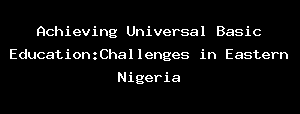profile/3540IMG_20200910_104802.jpg
Easylissy

Ladies, Before Opening Legs For Any Man Always Note The Following2
~1.7 mins read
Ladies, before opening legs for any man always note the following2
Relationships and marriage are both stages of life for every normal person. There always comes a time when boys and girls interact with each other. Due to the biological changes that take place within one's body, there comes a time when both ladies and men feel like they need someone by their side to keep then company. However, this is correct if it is done at the correct time. When doing this both partners ought to be very keen on what they do especially the ladies. We have seen in our community that ladies have always ended up the one's suffering as a result of such carelessness. So, it is better a lady puts certain things into consideration to avoid messing with her life. Let's have a look at them.
1. If she is ready to bear the outcomes
This is a very important question every lady deserves to ask herself before following with any man. Unfortunately, most of the ladies do not put this into consideration. They will do everything out of peer pressure and self-satisfaction but ruin their entire life. Of course, we know how harsh the outcomes might be. Among the common one's us ending up a pregnant woman or even obtain STIs.
2. Health status of that person
Currently, we are living in a time when there is the rampant spread of STIs. This is an easily transferable disease from one person to another during intercourse. Most of us will always feel shy to go for a diagnosis and obtain a cure. Unfortunately, it's too hard to predict whether someone is infected or not and the best remedy is to avoid this at all costs. We are also having a rampant spread of HIV and AIDs among the youths and you can't easily detect this.
profile/3540IMG_20200910_104802.jpg
Easylissy

Achieving Universal Basic Education:Challenges In Eastern Nigeria
~4.8 mins read
Achieving Universal Basic Education: Challenges in Eastern Nigeria.
Education and the educational system in Nigeria has been subject to many debates and rhetorics. For years, different reforms and amendments has been effected to improve the quality of education in Nigeria. One of these reforms include the Universal basic education program.
This program was introduced in line with the Millennium development goals(MDGs) number 2, which was one of 8 goals the United Nations(UN) introduced in September 2000, as agenda for reducing poverty and improving lives in the global community.
It instructs achieving universal primary education, targeted for 2015. This goal was to ensure that all boys and girls complete primary school. It was introduced with the dictates of section 18 of the 1999 constitution of the federal republic of Nigeria, to eradicate illiteracy by providing free and compulsory primary, secondary and adult literacy education to all Nigerians. It stipulates that everybody should have access to equivalent education comprehensively. It is a programme meant to affect Nigerians(male and female) aged between 6 and 15years at first instance.
Some of the goals of the Universal basic education in Nigeria include:
1) Developing a strong conscientiousness for education among the citizens.
2) Reducing the incidence of out of school children in the system.
3) Catering for children, their schooling as well as other out of school children or adolescents through appropriate forms of complementary approaches to the provision of UBE.
4) Ensuring the acquisition of appropriate level of literacy, numeracy, manipulative, communicative and life skills as well as the ethical, moral and civic values needed for laying a solid foundation for long living.
One question begs an answer, how far have these goals been met in Nigeria?
Unfortunately, although some improvements have been made in Enrolment in recent years, it’s results have been limited, and Nigeria’s education system still rates very poorly among the international rankings. The efficiency of this program has been marginal considering its span of two decades.
As of 2015, Nigeria ranked 103 out of 118 countries in UNESCOs education for all(EFA) development index which takes into account, universal primary education, adult literacy, quality of education and gender parity. UNESCO 2015 review of education in Nigeria found that enrollment into primary and junior secondary level had greatly increased, however transition and completion rate remains below 70%.
UNESCO concludes that-
Participation in primary level is still low, in comparison with primary school age population.
The quality of the national school curriculum is undermined by the general low quality of teachers who implement it, which translates to low level of learning achievements.
Infrastructure, toilets and furniture are inadequate and in a dilapidated state.
The system of collecting comprehensive relevant data is weak.
There are social and cultural barriers that are hindering female participation.
The Universal basic education system has passed through series of experiments and experiences, as well as challenges in Nigeria. 3 demographic studies carried out by Adepoju and Fabiyi( 2007) has shown startling revelations in the universal basic education in Nigeria in the last two decades. According to their findings, 12.0% of pupils studying in Nigerian primary schools sit on the floor for lessons, 38.0% of classrooms have no ceiling boards, 87.0% of the classrooms are crowded while 77.0% of the pupils have no basic textbooks. According to Adesina( 2000), almost all the teachers are poorly motivated, and most communities show no interest and participate poorly in management of the primary schools. A lot of teachers engage o series of corrupt practices due to lack of incentives to motivate them to execute their duties responsibly.
In some south eastern local governments, schools like the okwuta community primary school in Umuahia Abia state, have not experienced prompt maintenance services such that damaged school property ravaged by storm or flood have had their pupils receive lessons under shade of trees. Hardly could any communities boast of community primary schools libraries. The pattern has been the communities waiting for governments to provide every educational need of the public schools. Some of the pupils of these schools come from homes where parents cannot afford regular meals or school uniforms and bags on account of poverty. Poverty is widespread in Nigeria, the problem of managing children coming to school from absolutely poor homes is a huge challenge.
The implementation of the UBE programme is overseen by the UBE commission (UBEC), with a range of other institutions specifically responsible for education in the country. Basic education administration in Nigeria is the responsibility of the local education authorities (LGEAs) under the supervision of state universal basic education boards (SUBEBS) and the UBEC at federal level. Public primary schools operated by these SUBEBS are operating with inadequate funds like other government run educational institutions in Nigeria. The federal government is supposed to provide bulk of of these funding while the state governments assist sufficiently to provide funds to ensure the poor parents contribute only minimal funds (UBE, 2006). Many of these schools have no libraries to accommodate books provided by government to facilitate the UBE programme. There are also not enough chairs and tables for use by pupils and students. Cases of pupils studying in dilapidated buildings with no roofs are still common in local governments in the south east under the UBE programme. Large amounts have been budgeted annually for successful implementation of the programme in the country by federal and state governments as well as foreign aid donors, many schools are still studying with inadequate facilities. Some scholars argue that UBE will meaningfully contribute to educational development when school buildings, water, electricity, desks, tables, chairs, libraries and access roads are adequately provided to facilitate teaching and learning.
Implementation of the UBE programme and achievement of the MDG goal 2, have been confronted with some challenges in Nigeria. Challenges arising for overlap in policies.
Some other challenges stems from the fact that these goals may relate to wider forces of changes outside the control of governments or individual organizations. These include physical facilities, poor funding, over subscription, poverty, dearth of statistical data.
With these sorts of challenges, achieving the goals of UBE remains a tall order, yet a human development issue. Instructively, meeting the MDG on the Universal basic education is a task that should be taken seriously by the Local governments in Nigeria, given that success in this regard stands to benefit the Nigeria’s neglected rural majority who reside in the local government areas. Education remains a right for the ordinary Nigerian citizen.
The challenges that are inherent in meeting this goal, not only call for effective policy articulation by the government in Nigeria, but also demand collaborative efforts by the 3 tiers, namely the local, state and federal governments.
Advertisement

Link socials
Matches
Loading...

